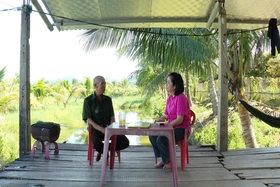4bqz4bufY+G6q2/DueG6v8ODw4M34bqpw4Am4buhxILDueG7jeG6qeG6teG6s8ODxILhuqLFqeG7p+G7o+G6tSThuq7hur/hu6fhu6Phuqsm4bqi4buh4bqrw4Dhuq7Dg+G7n+G7jcOD4bqr4budxanhuqLhuqvhu53FqeG6ouG7jcODxILhuqvDgOG6osWpxILhu41vxILhu6HFqeG7p+G6sy/Dg8SC4bqixanhu6fhu6PhurXhurMv4bufY+G6teG6s8OA4bqrb8O54bq/w4PDgzfhuqnDgOG7nuG7jeG6v8Oz4bqp4bq14bug4bun4bqr4bqi4buNb+G7jeG7p8SC4bqrReG7jeG6v+G6osODw6Phuqsk4bqu4bq/4bun4buj4bqrJuG6ouG7oeG6qz3huqLFqUPhu6Hhu6dv4buN4bqr4buf4bq/w4PhuqvDg+G7oeG7o+G7p+G7oeG7neG7oW/hur/hu6fEgsO5ReG6q+G7oeG7pcOA4bqixalD4buNw7Phuqvhu6HEgsOD4bqr4budxanhuqLhu43Dg8SC4bqr4bul4bq/4bun4bq/4buj4buN4bul4buN4bunxILhuqvhur/hu6fDs+G6q8OA4bqixanEguG7jW/EguG7ocWp4bun4bqr4buN4bud4budxanhuqLEgsODw6PhuqvDgOG6v+G6osSC4buhb+G6rsO54bq/4bqiw7lF4bqr4buh4bun4bqr4bq/4bqi4buN4bq/w4Phuqvhu6Hhu6fhu5/hur9u4buhxILhu43Ds+G6q25F4bqr4buNxILhu5/hu6fhu6Fv4bqr4bul4buh4bunxanhuqLhu6HEgkXhuqtvxanhu6Xhu6Xhuq7hu6fhu6HEguG7oeG7jcODxIPhuqsl4buNb8Wp4buj4bun4buheuG7oeG7p+G7o+G6q8SC4buf4bq/xILhuqvhu53FqeG6ouG7jcODxILhuqvhu6Xhur/hu6fhur/hu6Phu43hu6Xhu43hu6fEguG6q2/hur/hu6fhuqvFqeG7p8O5ReG6q27hu43huqvhu43hu53hu53hu41vxILhu6FD4buN4bqrROG7n+G7jeG7p+G6q8O5xalv4bq/w7nhuqvhuqLhu43Dg+G7ocOz4buN4bunxILDg8Oj4bqr4buNw4PDgOG7jW/hu6Hhur/DucO5ReG6q8SC4bufxanDg+G7jeG6q8O54buhQ+G7oeG7p+G7o+G6q+G7p+G7jeG6v+G6ouG6q+G7ncWp4bqi4buNw4PEgsODw6Phuqvhur/huqLhu43huqvhur9vxILhu6FD4buNw7lF4bqr4buN4bun4buj4bq/4buj4buNw7PDo+G6q8OA4bqixalD4buh4bunb+G7oeG6v8O54bqr4bq/4bquxILhu5/FqeG6ouG7ocSC4buh4buNw4Phuqvhu5/hur9D4buN4bqr4budxalv4bquw4Phu43Ds+G6q8Wp4bun4bqr4bqi4bq/4buhw4Phu6Hhu6fhu6PhuqvDgOG6rm7DueG7oW/huqvhur9E4bq/4bqi4buN4bun4buNw4PDg+G6q+G6v+G7p8Oz4bqrw4DhuqLFqeG7pcWpxILhu6Hhu6fhu6Phuqtvxanhu6Xhu6Xhuq7hu6fhu6HEgkXhuqvhu6Hhu6dDxanDuUPhu43hu6Xhu43hu6fEgsSD4bqrJuG7n+G7jcOD4buN4bqr4buN4bud4budxanhuqLEgsOD4bqr4buf4bq/Q+G7jeG6q8OA4bqixalD4buN4bun4bqrxILFqeG6q27hu43huqvDuuG7jUXhuqvhu6Hhu6fhuqvEguG7n+G7jeG6q8OA4bqixalD4buh4bunb+G7jeKAmcOD4bqrw4Phuq5vb+G7jcODw4Phuqvhu6Hhu6fhuqvDgOG6osWpxILhu41vxILhu6Hhu6fhu6Phuqvhu6HEgsOD4bqr4budxanhuqLhu43Dg8SC4bqr4bqi4buNw4PFqeG6ruG6om/hu43Dg8SD4bqzL8OA4bq14bqzw4Dhuqtvw7nhur/Dg8ODN+G6qcOATsWpw7NF4bqp4bq1JuG7n+G7jeG6q8OA4bqixalD4buh4bunb+G7oeG6v8O54bqr4bucxanhuqLhu43Dg8SC4bqrPeG6osWpxILhu41vxILhu6HFqeG7p+G6q8OT4buNw4Dhur/huqLEguG7peG7jeG7p8SCw6Phuqvhur/DucWp4bun4buj4bqrROG7ocSC4buf4bqrw7nFqW/hur/DueG6q+G7o8WpQ+G7jeG6ouG7p+G7peG7jeG7p8SCw4PDo+G6q+G7n+G6v8OD4bqr4bul4bq/w7Phu43huqvhu6HEguG6q+G6v+G6q8OA4bqi4buhxanhuqLhu6HEgkXhuqvEgsWp4bqrw7Phu6FD4buN4bqiw4Phu6Hhu51F4bqrb8Wp4bul4bul4bqu4bun4buhb+G6v8SC4buhxanhu6fhuqvDg8SC4bqi4bq/xILhu43hu6Phu6Hhu43Dg8Oj4bqr4bq/w7Phur/DgMSC4bqr4buh4bun4budxanhuqLhu6Xhur/EguG7ocWp4bun4bqrw7Phu6HDg8OD4buN4bul4buh4bun4bq/xILhu6HFqeG7p+G6q+G7peG7jcSC4bufxanDs8ODw6Phuqvhur/hu6fDs+G6q+G7jcSQw4Dhur/hu6fDs+G6q8SC4buf4buN4bqrxILhur/huqLhu6Phu43EguG6q+G6v+G6rsOz4buh4buN4bunb+G7jeG6q8SCxanhuqvhu43hu6fhu5/hur/hu6dv4buN4bqr4budxanhuqLhu43Dg8SC4bqr4bul4bq/4bun4bq/4buj4buN4bul4buN4bunxILhuqvFqeG6rsSCb8Wp4bul4buNw4PEg+G6qybhu5/hu6HDg+G6q+G6v8OAw4DhuqLFqeG6v2/hu5/huqvhur/hu6Hhu6XDg+G6q8SCxanhuqvhu53FqcODxILhu43huqLhuqvhur/huqvhu6PhuqLhu43hur/EguG7jeG6ouG6q+G6ruG7p8Oz4buN4bqiw4PEguG6v+G7p8Oz4buh4bun4buj4bqrxanhu53huqvEguG7n+G7jeG6q+G7oeG7pcOAxanhuqLEguG6v+G7p2/hu43huqvFqeG7neG6q+G7ncWp4bqi4buNw4PEgsOD4bqr4bq/4bunw7Phuqvhu43hu6dvxanhuq7huqLhur/hu6Phu43huqvhuqLhu43Dg+G7ocOz4buN4bunxILDg+G6q8SCxanhuqvhur9vxILhu6FD4buNw7lF4bqrw4Dhur/huqLEguG7oW/hu6HDgOG6v8SC4buN4bqr4buh4bun4bqrw4DhuqLFqcSC4buNb8SC4buh4bun4buj4bqrxILhu5/hu43hu6XEg+G6sy/DgOG6teG6s8OA4bqrb8O54bq/w4PDgzfhuqnDgE7FqcOzReG6qeG6teG6s+G7oeG7peG7o+G6q2/DueG6v8ODw4M34bqp4buhT+G7jeG7p8SC4buN4bqi4bqp4bqrw4PhuqJvN+G6qeG7n8SCxILDgMOD4bqhLy9vxINu4bq/xanhuqDhuq7hur/hu6fhu6PEguG6ouG7ocSDQ+G7py/Ds+G7jcODw7rEgsWpw4Av4bun4buNRMODL2RlxJHhurkvY2Nlw7NkY8OqxJHhurtiw6rEgmRiw6pjw7llLeG7oeG7peG7oy3DqsOp4bq7YsSDROG7jW7DgOG6qeG6q+G6v8O5xII34bqpJOG6ruG6v+G7p+G7o+G6qybhuqLhu6HhuqvDgOG6rsOD4buf4buNw4Phuqvhu53FqeG6ouG6q+G7ncWp4bqi4buNw4PEguG6q8OA4bqixanEguG7jW/EguG7ocWp4bun4bqp4bqrL+G6teG6sy/DgOG6teG6s8OA4bqrb8O54bq/w4PDgzfhuqnDgE/hur/DgMSC4buhxanhu6fhuqnhurUm4buh4bulbuG7jeG6ouG6q+G7n+G6v+G6okPhu43Dg8SC4buh4bun4buj4bqr4buh4bun4bqrT+G6v+G7peG6qybhuq5F4buN4bun4bqrT8Wp4bul4bul4bqu4bun4buNw6PhuqtP4bq/4bul4bqrw5nFqeG6q8OT4buhw4PEguG6ouG7oW/EguG6qy094bufxanEgsWp4bqh4bqrw5PEgybhurMvw4DhurXhurPDgOG6q2/DueG6v8ODw4M34bqpw4BOxanDs0XhuqnhurXhu6Dhu6fhuqsk4bqu4bq/4bun4buj4bqrJuG6ouG7ocOj4bqrxILhu5/hu43huqtb4bq/4bun4bqrw5rhu6Hhu43huq7huqvhur/hu6fDs+G6qz3hur/huqvDmsWp4bqr4buNxILhu5/hu6fhu6Fv4bqr4bul4buh4bunxanhuqLhu6HEgkXhuqvhu6PhuqLFqeG6rsOAw4Phuqvhur/huqLhu43huqtvxanhu6dv4buN4bunxILhuqLhur/EguG7jcOz4bqr4buh4bun4bqrQ+G7ocO5w7nhur/hu6Phu43Dg+G6q+G6v+G7p8Oz4bqrb8Wp4bul4bul4bqu4bun4buNw4PDo+G6q8OA4bq/4bqixILhu6Fv4bquw7nhur/huqLDuUXhuqvhu6Hhu6fhuqvEguG7n+G7jeG6q8Oz4buhw4PEguG6ouG7oW/EgsOD4bqrxanhu53huqvhu57huq7FqeG7p+G7o+G6q+G7nsWp4bq/4bqr4bq/4bunw7PhuqvDk+G6v8O64bqixanhu6fhu6PDo+G6q0Thu6HEguG7n+G6q8OD4bul4bq/w7nDueG7jeG6ouG6q8OAxanDgOG6rsO54bq/xILhu6HFqeG7p8OD4bqr4buh4bun4bqrW+G7oeG7p+G7n+G6q8OZ4buh4bun4bufw6Phuqvhu6Lhu6HFqeG6q8OZ4buh4bun4bufw6Phuqvhur/hu6fDs+G6q0/hur/hu6XhuqvDmcWp4bqrw7Phu6HDg8SC4bqi4buhb8SCw4PEg+G6sy/DgOG6teG6s8OA4bqrb8O54bq/w4PDgzfhuqnDgE7FqcOzReG6qeG6tSbhu5/hu43Dg+G7jeG6q2/FqeG7peG7peG6ruG7p+G7ocSC4buh4buNw4Phuqvhu5/hur9D4buN4bqrw7nFqeG7p+G7o+G6q+G7n+G6v8Oz4bqr4bq/4bqrw7Phu43hu43DgOG6q2/FqeG7p+G7p+G7jW/EguG7ocWp4bun4bqrxILFqeG6q8SC4buf4buN4bqr4budxanhuqLhu43Dg8SCw4PDo+G6q+G6ouG7jcO5ReG7oeG7p+G7o+G6q8Wp4bun4bqr4budxanhuqLhu43Dg8SC4bqr4bqi4buNw4PFqeG6ruG6om/hu43Dg+G6q+G7ncWp4bqi4bqrxILhu5/hu43hu6HhuqLhuqvDueG7oUPhu43DueG7oeG7n8WpxanDs8ODxIPhuqvFqEPhu43huqLhuqvhu6Phu43hu6fhu43huqLhur/EguG7ocWp4bunw4PDo+G6q8SC4buf4buNReG6q+G7n+G6v0Phu43huqvDs+G7jUPhu43DucWpw4Dhu43Ds+G6q2/huq7Dg8SCxanhu6XDg+G6q+G6v+G7p8Oz4bqrw4DhuqLhur9vxILhu6Fv4buNw4Phuqvhu53FqeG6ouG6q8OD4bquw4PEguG6v+G7oeG7p+G6v27DueG7jeG6q+G7ncWp4bqi4buNw4PEguG6q+G6rsOD4buNw6Phuqvhu6Xhur/hu6dF4bqrxanhu53huqtE4buf4buhb+G7n+G6q+G7n+G6v0Phu43huqtu4buN4buN4bun4bqrbuG7jeG7p+G7jeG7neG7oW/hu6Hhur/DueG6q+G7oeG7p+G6q+G7ncWp4bqi4buNw4PEguG6q8OA4bqixanEguG7jW/EguG7ocWp4bunxIPhurMvw4DhurXhurPDgOG6q2/DueG6v8ODw4M34bqpw4BOxanDs0XhuqnhurXhu6Dhu6fhuqvhuqLhu41v4buN4bunxILhuqtF4buN4bq/4bqiw4PDo+G6q8SC4buf4buN4bqr4bujxalD4buN4bqi4bun4bul4buN4bunxILhuqvhu5/hur/Dg+G6q+G7oeG7pcOAw7nhu43hu6Xhu43hu6fEguG7jcOz4bqr4bun4bqu4bul4buN4bqixanhuq7Dg+G6q8OAxanDueG7oW/hu6Hhu43Dg+G6q+G6v+G7oeG7peG7jcOz4bqr4bq/xILhuqvhur/EgsSC4bqi4bq/b8SC4buh4bun4buj4bqr4bqi4buNw4PFqeG6ruG6om/hu43Dg+G6q+G7ncWp4bqi4bqr4budxanhuqLhu43Dg8SC4bqrw4DhuqLFqcSC4buNb8SC4buhxanhu6fhuqvhur/hu6fDs+G6q8Oz4buNQ+G7jcO5xanDgOG7peG7jeG7p8SCxIPhuqsm4buf4buNw4Phu43huqvDgMWpw7nhu6Fv4buh4buNw4Phuqvhu5/hur9D4buN4bqrReG7oeG7jcO5w7Phu43Ds+G6q8OAxanDg+G7ocSC4buhQ+G7jeG6q+G6ouG7jcOD4bquw7nEgsODw6PhuqtE4buhxILhu5/huqvhur/hu6fhuqvhu6Hhu6dv4bqi4buN4bq/w4Phu6Hhu6fhu6Phuqvhu6fhuq7hu6Vu4buN4bqi4bqrxanhu53huqtvxanhu6Xhu6Xhuq7hu6fhu6HEguG7oeG7jcOD4bqr4bq/b8SC4buhQ+G7jcO5ReG6q8OA4bq/4bqixILhu6Fv4buhw4Dhur/EguG7oeG7p+G7o+G6q+G7oeG7p+G6q+G7ncWp4bqi4buNw4PEguG6q8OA4bqixanEguG7jW/EguG7ocWp4bun4bqr4bq/b8SC4buhQ+G7ocSC4buh4buNw4PEg+G6q+G7pOG6v+G7p0XhuqvhuqLhu43Dg+G7ocOz4buN4bunxILDg+G6q+G7n+G6v0Phu43huqvhur/DucODxanhuqtu4buN4bun4buN4bud4buhxILhu43Ds+G6q+G7neG7oeG7p+G6v+G7p2/hu6Hhur/DucO5ReG6q+G7neG6osWp4bul4bqr4budxanhuqLhu43Dg8SCLeG6ouG7jcO54bq/xILhu43Ds+G6q+G7jW/FqeG7p8Wp4bul4buhb+G6q+G6v2/EguG7oUPhu6HEguG7oeG7jcODxIPhurMvw4DhurXhurPDgOG6q2/DueG6v8ODw4M34bqpw4BOxanDs0XhuqnhurXhu57FqUThu41D4buN4bqiw6PhuqvEguG7n+G7jeG6q8OD4bqub2/hu43Dg8OD4bqrxanhu53huqvhu53FqeG6ouG7jcODxILhuqvDgOG6osWpxILhu41vxILhu6HFqeG7p+G6q+G6v+G7p8Oz4bqrbuG7ocWpw7Phu6FD4buN4bqiw4Phu6HEgkXhuqtvxanhu6fDg+G7jeG6okPhur/EguG7ocWp4bun4bqrw7Phu43DgOG7jeG7p8Ozw4PhuqvDueG6v+G6ouG7o+G7jcO5ReG6q8Wp4bun4bqrxILhu5/hu43huqvhu6Hhu6dDxanDuUPhu43hu6Xhu43hu6fEguG6q8Wp4bud4bqrw7nFqW/hur/DueG6q2/FqeG7peG7peG6ruG7p+G7ocSC4buh4buNw4PEg+G6q0/FqeG7peG7peG6ruG7p+G7ocSC4buh4buNw4PhuqvDgMO54bq/ReG6q+G6v+G6q0Phu6HEguG6v8O54bqr4bqixanDueG7jeG6q+G7oeG7p+G6q+G7pcWp4bun4buhxILFqeG6ouG7oeG7p+G7o+G6q+G7jeG6v2/hu5/huqvFqcSC4buf4buN4bqiw6Phuqvhu43Ds+G6rm/hur/EguG7oeG7p+G7o+G6q8Wp4bun4buN4bqr4bq/4bunxanEguG7n+G7jeG6osOj4bqr4bq/4bunw7Phuqvhu43hu6fhu53FqeG6om/hu6Hhu6fhu6PhuqvDucWpb+G6v8O54bqr4bqi4bquw7nhu43Dg8SD4bqrKsWpb+G7oeG6v8O54bqrw4DhuqLhu43Dg8OD4bqu4bqi4buN4bqr4buhw4PhuqvFqeG7ncSC4buN4bun4bqr4bquw4Phu43Ds+G6q8SCxanhuqvDgOG6ouG6v+G7ocOD4buN4bqrxILhu5/FqcOD4buN4bqrROG7n8Wp4bqrb8Wp4bunxILhuqLhu6Fu4bquxILhu43huqvDgMWpw4Phu6HEguG7oUPhu43DuUXhuqvEgsWp4bqr4budxanhuqLhu43Dg8SC4bqrw4DhuqLFqcSC4buNb8SC4buhxanhu6fhuqtE4buf4buhw7nhu43huqvDs+G7ocODb8Wp4bqu4bqi4bq/4buj4buh4bun4buj4bqr4buf4bq/4bqi4bul4bud4bquw7nhuqtu4buN4buf4bq/Q+G7ocWp4bqiw4PEg+G6qybhu5/hu6HDg+G6q+G6v8OAw4DhuqLFqeG6v2/hu5/huqvhu5/hu43DucOAw4Phuqvhu53FqcODxILhu43huqLhuqvhu6PhuqLhu43hur/EguG7jeG6ouG6q+G6v0Thur/huqLhu43hu6fhu43Dg8OD4bqr4bq/4bunw7Phuqvhu43hu6dvxanhuq7huqLhur/hu6Phu43Dg+G6q+G6ouG7jcODw4DFqeG7p8OD4buhbsO54buN4bqr4bq/b8SC4buhxanhu6fDg+G6q0Thu6HEguG7n+G7oeG7p+G6q8SC4buf4buN4bqrb8Wp4bul4bul4bqu4bun4buhxIJFxIPhurMvw4DhurXhurPDgOG6q2/DueG6v8ODw4M34bqpw4BOxanDs0XhuqnhurVPxanhu6Xhu6Xhuq7hu6fhu6HEguG7oeG7jcOD4bqr4buh4bun4bqrJOG6ruG6v+G7p+G7o+G6qybhuqLhu6HhuqvDg+G7n+G6v+G6ouG7jeG6q8ODxILhuqLFqeG7p+G7o+G6q27FqeG7p8Ozw4PhuqtE4buhxILhu5/huqvhu43hur9v4buf4bqrxanEguG7n+G7jeG6ouG6q+G6v+G7p8Oz4bqrROG7ocSC4buf4bqr4bun4bq/xILhuq7huqLhu43Do+G6q+G6osWpxanEguG7jcOz4bqr4buh4bun4bqrw4Phu5/hur/huqLhu43Ds+G6q8O54bq/4bun4buj4bqu4bq/4buj4buNw4PDo+G6q2/huq7DucSC4bqu4bqi4bq/w7nhuqvEguG6ouG6v8Oz4buhxILhu6HFqeG7p8ODw6Phuqvhur/hu6fDs+G6q2/huq7Dg8SCxanhu6XDg8SD4bqr4bq+w4Phuqvhur/huqvhuqLhu43Dg+G6rsO5xILDo+G6q2/FqeG7peG7peG6ruG7p+G7ocSCRS1u4bq/w4Phu43Ds+G6q+G7ncWp4bqi4buNw4PEguG6q+G7peG6v+G7p+G6v+G7o+G7jeG7peG7jeG7p8SC4bqrxanhu53hu53hu43huqLDg+G6q+G7p+G6ruG7peG7jeG6osWp4bquw4Phuqtu4buN4bun4buN4bud4buhxILDg8SD4bqrJuG7n+G7jcOD4buN4bqr4buh4bunb8O54bquw7Phu43huqvhuqLhur/hu6HDg+G7oeG7p+G7o+G6q+G6v0Thur/huqLhu43hu6fhu43Dg8OD4bqrxanhu53huqvhu53FqeG6ouG7jcODxILhuqJF4bqrw7nhur9Ew4PDo+G6q+G6ouG7jcODxanDuUPhu6Hhu6fhu6Phuqtvxanhu6fhu53DueG7oW/EgsOD4bqrbuG7jcSCROG7jeG7jeG7p+G6q+G7n+G6ruG7peG6v+G7p8OD4bqr4bq/4bunw7Phuqvhu6fhur/EguG6ruG6ouG7jcOj4bqrw4DhuqLFqeG7pcWpxILhu6Hhu6fhu6PhuqvDg+G6rsODxILhur/hu6Hhu6fhur9uw7nhu43huqvhuqLhu43Dg8Wp4bqu4bqib+G7jeG6q+G7peG6v+G7p+G6v+G7o+G7jeG7peG7jeG7p8SCw6Phuqvhur/hu6fDs+G6q+G6ouG7jcOz4bqub+G7oeG7p+G7o+G6q8SC4buN4bunw4Phu6HFqeG7p8OD4bqrbuG7jcSCROG7jeG7jeG7p+G6q+G7jW/FqeG7p8Wp4bul4buhb+G6q8Oz4buNQ+G7jcO5xanDgOG7peG7jeG7p8SC4bqr4bq/4bunw7Phuqtu4buhxanDs+G7oUPhu43huqLDg+G7ocSCReG6q2/FqeG7p8OD4buN4bqiQ+G6v8SC4buhxanhu6fEg+G6q+G7oOG7pcOAxanhuqLEguG6v+G7p8SCw7lFw6Phuqvhu6HEguG6q+G7jeG7pcOAxalE4buN4bqiw4Phuqtvxanhu6Xhu6Xhuq7hu6fhu6HEguG7oeG7jcOD4bqrxILFqeG6q8SC4bq/w7rhu43huqvhur/hu6fhuqvhur9vxILhu6FD4buN4bqr4bqixanDueG7jeG6q+G7oeG7p+G6q+G7ncWp4bqi4buNw4PEguG6q8OA4bqixanEguG7jW/EguG7ocWp4bunxIPhurMvw4DhurXhurPDgOG6q2/DueG6v8ODw4M34bqpw4BOxanDs0XhuqnhurUl4buNb8Wp4buj4bun4buheuG7oeG7p+G7o+G6q8SC4buf4buhw4PDo+G6q+G6v+G6rsSC4bufxanhuqLhu6HEguG7oeG7jcOD4bqr4buf4bq/Q+G7jeG6q8OA4bqi4buhxanhuqLhu6HEguG7oXrhu43Ds+G6q+G7pcWpbuG7ocO54buheuG7oeG7p+G7o+G6q+G7jcSC4buf4bun4buhb+G6q+G7peG7oeG7p8Wp4bqi4buhxIJF4bqrb8Wp4bul4bul4bqu4bun4buhxILhu6Hhu43Dg+G6q8O54buhQ+G7oeG7p+G7o+G6q+G7p+G7jeG6v+G6ouG6q+G7ncWp4bqi4buNw4PEgsOD4bqrxILFqeG6q3XFqeG7oeG7p+G6q+G7oeG7p+G6q+G7ncWp4bqi4buNw4PEguG6q8OA4bqixanEguG7jW/EguG7ocWp4bun4bqr4buN4bud4budxanhuqLEgsODxIPhuqsm4buf4buhw4Phuqvhur/DgMOA4bqixanhur9v4buf4bqr4bq/w7nhu6Hhu6Phu6fDg+G6q0Thu6HEguG7n+G6q+G6v+G6q+KAnMODxalv4buh4bq/w7nhu6F64buNw7PigJ3huqvhu41vxanDucWp4buj4buhb+G6v8O54bqr4bq/4bunw7Phuqvhu5/huq7hu6Xhur/hu6ctb+G7jeG7p8SC4buN4bqi4buNw7PhuqvDgOG7jeG6osODw4Dhu41vxILhu6FD4buN4bqrxILhu5/hur/EguG6q+G7jeG7pcOA4buf4bq/w4Phu6F64buNw4PhuqtvxanDucO54buNb8SC4buhQ+G7jeG6q+G6v2/EguG7ocWp4bunxIPhurMvw4DhurXhurPDgOG6q2/DueG6v8ODw4M34bqpw4BOxanDs0XhuqnhurU94bqubsO54buhb+G6q+G6v0Thur/huqLhu43hu6fhu43Dg8OD4bqrb+G6v+G7pcOA4bq/4buh4buj4bunw4Phuqvhu5/hur9D4buN4bqr4buh4bunxILhuqLFqcOz4bqub+G7jcOz4bqr4bqi4buNw4Phu6HDs+G7jeG7p8SCw4PhuqvEgsWp4bqrxILhu5/hu43huqvhu5zFqeG6ouG7jcODxILhuqJF4bqrw5nhur9E4bqr4bq/4bunw7Phuqvhu5/hu6Hhu6Phu5/DueG7oeG7o+G7n8SC4buNw7PhuqvEguG7n+G7jeG6q8O54buh4bunw7rDg+G6q27hu43EgkThu43hu43hu6fhuqvhu53FqeG6ouG7jcODxILhuqvhu6Xhur/hu6fhur/hu6Phu43hu6Xhu43hu6fEgsOj4bqrw4DFqUPhu43huqLEgkXhuqvhuqLhu43Ds+G6rm/EguG7ocWp4bunw6Phuqvhur/hu6fDs+G6q8OD4bquw4PEguG6v+G7oeG7p+G6v27DueG7jeG6q8Oz4buNQ+G7jcO5xanDgOG7peG7jeG7p8SCxIPhuqsm4buf4buN4bqrb+G6v+G7pcOA4bq/4buh4buj4bunw4Phuqvhur/DucODxanhuqvhu43hu6XDgOG7n+G6v8OD4buheuG7jeG6q8SC4buf4buN4bqr4bqixanDueG7jeG6q8Wp4bud4bqrxILhuqLhur/Ds+G7ocSC4buhxanhu6fhur/DueG6q2/huq7Dg8SCxanhu6XDg+G6q+G7oeG7p+G6q+G7ncWp4bqi4buNw4PEguG6q2/FqeG7p8OD4buN4bqiQ+G6v8SC4buhxanhu6fhuqvhur/hu6fDs+G6q8Wp4bquxILDueG7oeG7p+G7jeG6q8SC4buf4buN4bqrb+G6ruG6ouG6ouG7jeG7p8SC4bqrw4PEguG6v8SC4buN4bqrxanhu53huqvhu53FqeG6ouG7jcODxILhuqvDgOG6osWpxILhu41vxILhu6HFqeG7p+G6q+G7oeG7p+G6q+G7pcWp4bqu4bunxILhur/hu6Hhu6fFqeG6rsOD4bqr4bq/4bunw7Phuqvhu43EguG7n+G7p+G7oW/huqvhu6Xhu6Hhu6fFqeG6ouG7ocSCReG6q+G6ouG7jeG7o+G7ocWp4bunw4PEg+G6sy/DgOG6teG6s8OA4bqrb8O54bq/w4PDgzfhuqnDgE7FqcOzReG6qeG6tSbhu5/huqLFqeG6ruG7o+G7n+G6q8SC4buf4buNw4Phu43huqvhu43hu53hu53FqeG6osSCw4PDo+G6q8O5xalv4bq/w7nhuqtvxanhu6Xhu6Xhuq7hu6fhu6HEguG7oeG7jcOD4bqr4buf4bq/Q+G7jeG6q2/FqeG7peG7jeG6q8SCxanhuqvhuqLhu41vxanhu6Phu6fhu6F64buN4bqr4budxanhuqLhu43Dg8SCw4Phuqvhur/Dg+G6q+G6v+G6q8OA4bqi4buNb+G7ocWp4bquw4Phuqvhu6fhur/EguG7ocWp4bun4bq/w7nhuqvhuqLhu43Dg8Wp4bqu4bqib+G7jeG6q8SC4buf4bq/xILhuqvDg+G7n+G7jcO5xILhu43huqLDg+G6q+G6ouG6v+G6ouG7jeG6q8ODw4Dhu41v4buh4buNw4PhuqvFqeG7neG6q8OAw7nhur/hu6fEgsOD4bqr4bq/4bunw7Phuqvhur/hu6fhu6Hhu6Xhur/DucODw6PhuqvhuqLhu43hu6Phuq7DueG6v8SC4buNw4Phuqvhur/hu6HhuqLhuqvhuqDhuq7hur/DueG7ocSCRcOj4bqrw4DhuqLFqcSC4buNb8SCw4PhuqtE4bq/xILhu43huqLhuqvDg8Wp4bqu4bqib+G7jcODw6Phuqvhur/hu6fDs+G6q+G7peG7ocSC4buh4buj4bq/xILhu43Dg+G6q+G7p+G6v8SC4bqu4bqi4bq/w7nhuqvDs+G7ocOD4bq/w4PEguG7jeG6osOD4bqrw4Phuq5v4buf4bqr4bq/w4Phuqvhu53DucWpxanDs8OD4bqr4bq/4bunw7PhuqvDueG6v+G7p8Ozw4PDueG7ocOz4buNw4PEg+G6sy/DgOG6teG6s8OA4bqrb8O54bq/w4PDgzfhuqnDgE7FqcOzReG6qeG6tT3huqLFqcSC4buNb8SC4buh4bun4buj4bqr4budxanhuqLhu43Dg8SCw4Phuqvhu6HDg+G6q+G7p8WpxILhuqvFqeG7p8O5ReG6q+G6v+G6q+G6ouG7jcODw4DFqeG7p8OD4buhbuG7ocO54buhxIJF4bqrbuG6rsSC4bqr4bq/w7nDg8Wp4bqr4bq/4bqr4bun4buNb+G7jcODw4Phur/huqJF4bqr4bq/b8SC4buhxanhu6fhuqvhu53FqeG6ouG6q+G6v8O5w7nEg+G6q+G7nMWp4bqi4buNw4PEguG6q8OA4bqixanEguG7jW/EguG7ocWp4bun4bqr4buhw4Phuqtv4bqi4bqub+G7oeG6v8O54bqr4budxanhuqLhuqvhu6Xhur/hu6Hhu6fEguG6v+G7oeG7p+G7oeG7p+G7o+G6q+G6v+G6q+G7n+G7jeG6v8O5xILhu59F4bqr4buN4bunQ+G7oeG6osWp4bun4bul4buN4bunxILhuqvhur/hu6fDs+G6q+G7oeG7pcOA4bqixalD4buh4bun4buj4bqrw7nhu6FD4buh4bun4buj4bqrb8Wp4bunw7Phu6HEguG7ocWp4bunw4PEg+G6qyrhuq5vb+G7jcODw4Phu53huq7DueG6q+G7ncWp4bqi4buNw4PEguG6q8OA4bqixanEguG7jW/EguG7ocWp4bun4bqr4buh4bun4buhxILhu6Hhur/EguG7oUPhu43Dg+G6q0Thu6HDucO54bqr4bq/w7nDg8Wp4bqrw4Phuq7DgMOAxanhuqLEguG6q8SC4buf4buN4bqr4buh4bulw4DDueG7jeG7peG7jeG7p8SC4bq/xILhu6HFqeG7p+G6q8Wp4bud4bqrw4PFqW/hu6HFqS3hu41vxanhu6fFqeG7peG7oW/huqvDs+G7jUPhu43DucWpw4Dhu6Xhu43hu6fEguG6q8OA4bqixanhu6PhuqLhur/hu6XDg8Oj4bqr4buh4bulw4DhuqLFqUPhu6Hhu6fhu6PhuqvEguG7n+G7jeG6q8O54buhQ+G7jcO54buh4bufxanFqcOzw4PhuqvFqeG7neG6q+G7jcSC4buf4bun4buhb+G6q+G7peG7oeG7p8Wp4bqi4buhxIJF4bqrb8Wp4bul4bul4bqu4bun4buhxILhu6Hhu43Dg8SD4bqzL8OA4bq14bqzw4Dhuqtvw7nhur/Dg8ODN+G6qcOATsWpw7NF4bqp4bq14buMw7nDs+G7jeG6osO5ReG6q8O54buN4bq/w7Phu43huqLDg8Oj4bqrQ+G7ocO5w7nhur/hu6Phu43huqtv4buf4buh4buN4budw4PDo+G6q+G6v+G7p8Oz4bqr4bqi4buNw4PDgOG7jW/EguG7jcOz4bqr4bud4buh4buj4bqu4bqi4buNw4PhuqtE4buhxILhu5/hu6Hhu6fhuqvhu43EguG7n+G7p+G7oW/huqvhu6Xhu6Hhu6fFqeG6ouG7ocSCReG6q2/FqeG7peG7peG6ruG7p+G7ocSC4buh4buNw4PhuqvDgMO54bq/ReG6q+G6v+G6q2/hu43hu6fEguG6ouG6v8O54bqr4bqixanDueG7jeG6q+G7oeG7p+G6q8OA4bqixanhu6XFqcSC4buh4bun4buj4bqrxILhu5/hu43huqs94bq/4bqixIJF4oCZw4PhuqvDgMWpw7nhu6Fv4buh4buNw4Phuqvhur/hu6fDs+G6q8SC4buf4buN4bqrKsSC4bq/xILhu43igJnDg+G6q8O54bq/RMOD4bqrxanhu6fhuqvhu53FqeG6ouG7jcODxILhuqvDgOG6osWpxILhu41vxILhu6HFqeG7p8SD4bqrJuG7n+G7jcOD4buN4bqr4buh4bunw7Phu6FD4buhw7Phuq7hur/DucOD4bqr4bq/4bqi4buN4bqrQ+G7ocSC4bq/w7nhuqvhu6Hhu6fhuqvhuqLhur/hu6HDg+G7oeG7p+G7o+G6q+G6v0Thur/huqLhu43hu6fhu43Dg8OD4bqrxanhu53huqvEguG7n+G7jeG6q+G7oeG7pcOAxanhuqLEguG6v+G7p2/hu43huqvFqeG7neG6q+G6ouG7jeG7ncWp4bqi4buNw4PEguG6v8SC4buhxanhu6fhuqvhur/hu6fDs+G6q8OA4bqi4buNQ+G7jeG7p8SC4buh4bun4buj4bqr4buhw7nDueG7jeG7o+G6v8O54bqr4budxanhuqLhu43Dg8SC4bqr4bq/b8SC4buhQ+G7ocSC4buh4buNw4PEg+G6sy/DgOG6teG6s8OA4bqrb8O54bq/w4PDgzfhuqnDgE7FqcOzReG6qeG6tSbFqeG6q+G7neG6ruG6osSC4buf4buN4bqi4bqrw4Phuq7DgMOAxanhuqLEguG6q+G7ncWp4bqi4buNw4PEguG6q8OA4bqixanEguG7jW/EguG7ocWp4bun4bqr4buN4bud4budxanhuqLEgsODw6PhuqvDucWpb+G6v8O54bqr4bq/4bquxILhu5/FqeG6ouG7ocSC4buh4buNw4Phuqvhu5/hur9D4buN4bqrbuG7jeG7jeG7p+G6q+G7jcODxILhur9uw7nhu6HDg+G7n+G7oeG7p+G7o+G6q+G7p+G7jcSCRMWp4bqiw7rDg8Oj4bqrw4PEguG6ouG7jeG7p+G7o8SC4buf4buN4bun4buh4bun4buj4bqrb8Wp4bul4bul4bqu4bun4buhxIJF4bqrb8Wp4bun4bun4buNb8SC4buhxanhu6fDg8Oj4bqr4bq/4bunw7Phuqvhu43hu6fDg+G6ruG6ouG7oeG7p+G7o+G6q8SC4buf4bq/xILhuqvhuqLhu43Dg+G7ocOz4buN4bunxILDg+G6q+G7n+G6v0Phu43huqvhur9vb+G7jcODw4PhuqvEgsWp4bqrxILhu5/hu43huqvhu6Hhu6fhu53FqeG6ouG7peG6v8SC4buhxanhu6fhuqvhur/hu6fDs+G6q+G6ouG7jcODxanhuq7huqJv4buNw4Phuqvhu6fhu43hu43Ds+G7jcOz4bqr4budxanhuqLhuqvhu53FqeG6ouG7jcODxILhuqtvxanhu6fDg+G7jeG6okPhur/EguG7ocWp4bunxIPhuqtbxanDueG6ruG7p8SC4buN4buN4bqi4bqr4buj4bqixanhuq7DgMOD4bqr4buf4bq/Q+G7jeG6q27hu43hu43hu6fhuqvhu53FqeG6ouG7peG7jcOz4bqrxILFqeG6q+G7jeG7p2/FqeG6ruG6ouG6v+G7o+G7jeG6q0Thu6HDs+G7jcODw4DhuqLhu43hur/Ds+G6q8OA4bq/4bqixILhu6Fv4buhw4Dhur/EguG7ocWp4bun4bqr4buh4bun4bqr4budxanhuqLhu43Dg8SC4bqrw4DhuqLFqcSC4buNb8SC4buhxanhu6fDo+G6q2/huqLhu43hur/EguG7oeG7p+G7o+G6q+G6v+G6q+G7pcWpQ+G7jeG7peG7jeG7p8SC4bqrxILhu5/hur/EguG6q8ODw4Dhur/hu6fDg+G6q+G7o+G7jeG7p+G7jeG6ouG6v8SC4buhxanhu6fDg8SD4bqzL8OA4bq14bqzw4Dhuqtvw7nhur/Dg8ODN+G6qcOATsWpw7NF4bqp4bq14buM4bq/b+G7n+G6q0Xhu43hur/huqLDo+G6q8SC4buf4buN4bqrw4DhuqLFqUPhu6Hhu6dv4buh4bq/w7nhuqvhu5zFqeG6ouG7jcODxILhuqs94bqixanEguG7jW/EguG7ocWp4bun4bqrw5Phu43DgOG6v+G6osSC4bul4buN4bunxILhuqtExanhuqLDusOD4bqrb8O5xanDg+G7jcO5ReG6q0Thu6HEguG7n+G6q+G6ouG7jcO54buNQ+G6v+G7p8SC4bqr4bq/4buj4buN4bunb+G7oeG7jcOD4bqr4bq/4bunw7PhuqvDucWpb+G6v8O54bqr4bujxalD4buN4bqi4bun4bul4buN4bunxILDg+G6q8SCxanhuqvFqeG6ouG7o+G6v+G7p+G7oXrhu43huqtv4bq/4bulw4Dhur/hu6Hhu6Phu6fDg+G6q8OA4bqixanhu6XFqcSC4buh4bun4buj4bqr4budxanhuqLhu43Dg8SC4bqrb8Wp4bunw4Phu43huqJD4bq/xILhu6HFqeG7p+G6q+G7oeG7p+G6q8ODb+G7n8WpxanDucODw6PhuqtD4buhw7nDueG6v+G7o+G7jcODw6Phuqvhur/hu6fDs+G6q2/FqeG7peG7peG6ruG7p+G7ocSC4buh4buNw4PEg+G6q+G7jMOz4bqub+G6v8SC4buhxanhu6fhur/DueG6q+G7peG6v8SC4buN4bqi4buh4bq/w7nDg8Oj4bqr4buh4bunb8O54bquw7Phu6Hhu6fhu6PhuqvDueG7jeG6v+G7ncO54buNxILDg+G6q+G6v+G7p8Oz4bqrw4DFqcODxILhu43huqLDg8Oj4bqr4buf4bq/Q+G7jeG6q27hu43hu43hu6fhuqtE4buhw7Phu43DuUXhuqvDs+G7ocODxILhuqLhu6Fu4bquxILhu43Ds8Oj4bqrw4Phu6Hhu6Phu6fhu6Hhu53hu6Fv4bq/4bunxILDuUXhuqvhuqLhur/hu6HDg+G7oeG7p+G7o+G6q8OA4bqubsO54buhb+G6q+G6v0Thur/huqLhu43hu6fhu43Dg8OD4bqrxanhu53huqvhu53FqeG6ouG7jcODxILhuqvhur/hu6fDs+G6q0Thu6HDucOzw7nhu6Hhu53hu43huqvDgOG6osWpxILhu41vxILhu6HFqeG7p8SD4bqzL8OA4bq14bqzw4Dhuqtvw7nhur/Dg8ODN+G6qcOATsWpw7NF4bqp4bq14bq+w4PhuqvFqeG7neG6q+G7p8WpRMOj4bqrJOG6ruG6v+G7p+G7o+G6qybhuqLhu6Hhuqvhu5/hur/Dg+G6q+G6v+G6q8SCxanEguG6v8O54bqr4budxanhuqLhu43Dg8SC4buNw7Phuqvhur/huqLhu43hur/huqvFqeG7neG6q2Rl4bq9w6Nj4bq9w6rhuqvhu5/hu41vxILhur/huqLhu43Dg8Oj4bqr4buh4bunb8O54bquw7Phu6Hhu6fhu6PhuqtjZOG6ucOj4bq5w6rEkeG6q+G7n+G7jW/EguG6v+G6ouG7jcOD4bqrxanhu53huqvhu6fhur/EguG6ruG6ouG6v8O54bqr4budxanhuqLhu43Dg8SC4bqr4bq/4bunw7PhuqtjZGPDo2XDqsOp4bqr4buf4buNb8SC4bq/4bqi4buNw4PhuqvFqeG7neG6q8OAw7nhur/hu6fEguG7jcOz4bqr4budxanhuqLhu43Dg8SCw6PhuqtE4buhxILhu5/huqvhur/huqvhu53FqeG6ouG7jcODxILhuqtvxalD4buN4bqi4bq/4buj4buN4bqr4bqi4bq/xILhu43huqvFqeG7neG6q2XDqsSDZTnEg+G6qybhu5/hu43huqvDgOG6osWpQ+G7oeG7p2/hu43huqvhu5/hur/Dg+G6q+G6v8O5w7nFqW/hur/EguG7jcOz4bqrxalD4buN4bqi4bqrZGJiw6NiYmLhuqvhu5/hu41vxILhur/huqLhu43Dg+G6q8Wp4bud4bqr4budxanhuqLhu43Dg8SC4bqrw7nhur/hu6fDs8Oj4bqr4bq/b2/FqeG6ruG7p8SC4buh4bun4buj4bqr4budxanhuqLhuqvhurlkOeG6q8Wp4bud4bqrxILhu5/hu43huqvEgsWpxILhur/DueG6q+G7ncWp4bqi4buNw4PEguG6okXhuqvDueG6v+G7p8Ozw6PhuqvEgsWp4bqrQ+G6v+G6ouG7ocWp4bquw4Phuqvhu43hu6fEguG7ocSC4buh4buNw4Phuqvhu53FqeG6ouG6q+G7peG6v+G7p+G6v+G7o+G7jeG7peG7jeG7p8SCxIPhurMvw4DhurXhurPDgOG6q2/DueG6v8ODw4M34bqpw4BOxanDs0XhuqnhurXhu6TFqeG6ouG7jeG6q8SC4buf4bq/4bun4bqrZGLDo2JiYuG6q+G7n+G7jW/EguG6v+G6ouG7jcOD4bqr4buf4bq/Q+G7jeG6q27hu43hu43hu6fhuqvhur/DucO5xalv4bq/xILhu43Ds+G6q8SCxanhuqtvxanhu6Xhu6Xhuq7hu6fhu6HEguG7oeG7jcOD4bqr4bq/4bunw7Phuqvhu5/FqeG6rsOD4buN4bufxanDucOzw4PDo+G6q0Thu5/hu6HDueG7jeG6q+G6v+G7p+G6q+G6v8Ozw7Phu6HEguG7ocWp4bun4bq/w7nhuqvDqmLDo2JiYuG6q+G7n+G7jW/EguG6v+G6ouG7jcOD4bqrxanhu53huqvhu6fhur/EguG6ruG6ouG6v8O54bqr4budxanhuqLhu43Dg8SC4bqr4buf4bq/Q+G7jeG6q27hu43hu43hu6fhuqtvxanhu6fEguG6ouG6v2/EguG7jcOz4bqrxILFqeG6q8O5xalv4bq/w7nhuqvhuqLhu43Dg+G7ocOz4buN4bunxILDg+G6q+G7ncWp4bqi4bqrw7nFqeG7p+G7oy3EguG7jeG6ouG7peG6q+G7peG6v+G7p+G6v+G7o+G7jeG7peG7jeG7p8SC4bqr4bq/4bunw7PhuqvDgOG6osWpxILhu41vxILhu6HFqeG7p8SD4bqr4bucxanhuqLhu43Dg8SC4bqrw4DhuqLFqcSC4buNb8SC4buhxanhu6fhuqvhur/hu6fDs+G6q+G7neG7oeG6ouG7jeG6q8OA4bqi4buNQ+G7jeG7p8SC4buhxanhu6fhuqvhu6Xhu43hur/Dg+G6ruG6ouG7jcOD4bqr4buf4bq/Q+G7jeG6q27hu43hu43hu6fhuqvDg8SC4bqi4buN4bun4bujxILhu5/hu43hu6fhu43Ds8Oj4bqr4buf4buNw7nDgOG7oeG7p+G7o+G6q8SCxanhuqvDgOG6ouG7jUPhu43hu6fEguG6q+G7ocO5w7nhu43hu6Phur/DueG6q8O5xanhu6Phu6Phu6Hhu6fhu6Phuqvhur/hu6fDs+G6q+G7ncWp4bqi4buNw4PEguG6q+G7jeG7p2/huqLFqeG6v2/hu5/hu6Xhu43hu6fEgsSD4bqrJuG7n+G7jcOD4buN4bqr4buN4bud4budxanhuqLEgsOD4bqr4buf4bq/Q+G7jeG6q8OA4bqixalD4buhw7Phu43Ds+G6q2/FqeG7peG7peG6ruG7p+G7ocSC4buh4buNw4PhuqtE4buhxILhu5/huqvDg8SC4bq/bsO54buN4bqrw7nhu6FD4buNw7nhu6Hhu5/FqcWpw7PDg+G6q+G6v+G7p8Oz4bqr4buf4buNw7nDgOG7jcOz4bqr4buh4bulw4DhuqLFqUPhu43huqvDueG7oUPhu6Hhu6fhu6PhuqvDg8SC4bq/4bunw7Phur/huqLDs8OD4bqr4buh4bun4bqr4bulxanhuq7hu6fEguG6v+G7oeG7p8Wp4bquw4Phuqvhur/hu6fDs+G6q+G7jcSC4buf4bun4buhb+G6q+G7peG7oeG7p8Wp4bqi4buhxIJF4bqr4bqi4buN4buj4buhxanhu6fDg8SD4bqzL8OA4bq14bqzw4Dhuqtvw7nhur/Dg8ODN+G6qcOATsWpw7NF4bqp4bq14bug4bun4bqrb8Wp4bunb8O54bquw4Phu6HFqeG7p8Oj4bqrb8Wp4bul4bul4bqu4bun4buhxIJF4bqr4buh4bunQ8Wpw7lD4buN4bul4buN4bunxILhuqvhuqLhu43hu6Xhur/hu6Hhu6fDg+G6q+G6v8SC4bqrxILhu5/hu43huqvhu5/hu43hur/huqLEguG6q8Wp4bud4bqrJOG6ruG6v+G7p+G7o+G6qybhuqLhu6HigJnDg+G6q+G7ncWp4bqi4buNw4PEguG6q+G7peG6v+G7p+G6v+G7o+G7jeG7peG7jeG7p8SC4bqrw4PEguG6ouG6v8SC4buN4bujRcSD4bqrTkXhuqvhu43hu6XDgMWpROG7jeG6ouG7oeG7p+G7o+G6q8O5xalv4bq/w7nhuqtvxanhu6Xhu6Xhuq7hu6fhu6HEguG7oeG7jcOD4bqrxILFqeG6q8OA4bqixanEguG7jW/EguG6q+G6v+G7p8Oz4bqr4bul4bq/4bun4bq/4buj4buN4bqr4budxanhuqLhu43Dg8SC4bqr4bqi4buNw4PFqeG6ruG6om/hu43Dg8Oj4bqrxILhu5/hu43huqvDgOG6osWpQ+G7oeG7p2/hu43huqvhu6HDg+G6q+G7ncWpw4PEguG7jeG6ouG7oeG7p+G7o+G6q8OD4bquw4PEguG6v+G7oeG7p+G6v27DueG7jeG6q8Oz4buNQ+G7jcO5xanDgOG7peG7jeG7p8SC4bqr4bq/4bunw7PhuqvDgOG6ouG7jcOD4buN4bqiQ+G7oeG7p+G7o+G6q+G7ocSCw4PhuqtD4bq/w7nhuq7hur9uw7nhu43huqtu4buhxanDs+G7oUPhu43huqLDg+G7ocSCReG6q+G7ncWp4bqi4bqr4bud4bquxILhuq7huqLhu43huqvhu6Phu43hu6fhu43huqLhur/EguG7ocWp4bunw4PEg+G6sy/DgOG6teG6s8OA4bqrb8O54bq/w4PDgzfhuqnDgE7FqcOzReG6qeG6tSThuq7hur/hu6fhu6Phuqsm4bqi4buh4bqrPeG6osWpQ+G7oeG7p2/hu43Do+G6q0Thu6HEguG7n+G6q+G7ocSCw4Phuqvhu43EkMSC4buN4bunw4Phu6FD4buN4bqr4budxanhuqLhu43Dg8SC4bqrb8WpQ+G7jeG6ouG6q8Wp4bud4bqrxalD4buN4bqi4bqrZGXhur3Do2JiYuG6q+G7n+G7jW/EguG6v+G6ouG7jcODw6Phuqvhu5/hur/Dg+G6q+G7peG6v8Oz4buN4bqrw4Phu6Hhu6Phu6fhu6Hhu53hu6Fv4bq/4bunxILhuqvDg8SC4bqi4buhw7Phu43Dg+G6q+G7oeG7p+G6q+G7ncWp4bqi4buNw4PEguG6q+G7peG6v+G7p+G6v+G7o+G7jeG7peG7jeG7p8SCw6PhuqvDgOG6osWpxILhu41vxILhu6HFqeG7p8Oj4bqr4bq/4bunw7PhuqvDs+G7jUPhu43DucWpw4Dhu6Xhu43hu6fEguG6q+G7oeG7p+G6q+G6ouG7jW/hu43hu6fEguG6q0Xhu43hur/huqLDg8SD4bqr4bq+b2/FqeG6osOz4buh4bun4buj4bqrxILFqeG6q8SC4buf4buN4bqrw4DhuqLFqUPhu6Hhu6dv4buh4bq/w7nhuqvhu5zFqeG6ouG7jcODxILhuqs94bqixanEguG7jW/EguG7ocWp4bun4bqrw5Phu43DgOG6v+G6osSC4bul4buN4bunxILDo+G6q8SC4buf4buN4bqr4bq/w4DDgMO54buhb+G6v8SC4buhxanhu6fhuqvFqeG7neG6q+G6v8OzQ+G6v+G7p2/hu43Ds+G6q8SC4buNb+G7n+G7p8Wpw7nFqeG7o0Xhuqvhu6Hhu6fhuqvhu53FqeG6ouG7jcODxILhuqJF4bqr4buf4bq/w4PhuqvDueG7jcOz4bqrxILFqeG6q+G7p8WpxILhur9uw7nhu43huqvhu6Hhu6XDgOG6osWpQ+G7jeG7peG7jeG7p8SCw4Phuqvhu6Hhu6fhuqvEguG7n+G7jcOD4buN4bqr4bq/4bqi4buN4bq/w4PEg+G6sy/DgOG6teG6s8OA4bqrb8O54bq/w4PDgzfhuqnDgE7FqcOzReG6qeG6teG7oOG7p+G6q2RiZMSR4bqr4bq/w7nFqeG7p+G7jcOj4bqr4bquw4Phu6Hhu6fhu6PhuqvDg+G6v8SC4buNw7nDueG7ocSC4buN4bqr4buh4bul4bq/4buj4buN4bqiRcOj4bqrxILhu5/hu43huqvDs+G7jcOA4bq/4bqixILhu6Xhu43hu6fEguG6q+G7ocOz4buN4bunxILhu6Hhu53hu6Hhu43Ds+G6q+G6uWThuqvDucWpb+G6v8SC4buhxanhu6fDg+G6q0Thu6HEguG7n+G6q2/hu5/hur/hu6fhu6Phu43Dg+G6q+G7oeG7p+G6q+G7p+G6v8SC4bqu4bqi4bq/w7nhuqvhu53FqeG6ouG7jcODxILhuqvhur/huqLhu43hur/Dg+G6q8SCxanEguG6v8O54buh4bun4buj4bqr4bq7YsSDZOG6q+G7n+G7jW/EguG6v+G6ouG7jcODxIPhuqvFqOG7py3EguG7n+G7jS3hu6PhuqLFqeG6ruG7p8Oz4bqr4buh4bunw4PDgOG7jW/EguG7ocWp4bunw4Phuqtvxanhu6fhu53hu6HhuqLhu6Xhu43Ds+G6q8SC4buf4bq/xILhuqvEguG7n+G7jcOD4buN4bqrw4Phur/EguG7jcO5w7nhu6HEguG7jS3Ds+G7jeG6ouG7oUPhu43Ds+G6q8Oz4bq/xILhur/huqvhur/huqLhu43huqvFqUPhu43huqLhuqvDqmI54bqr4bq/b2/huq7huqLhur/EguG7jcSD4bqzL8OA4bq14bqzw4Dhuqtvw7nhur/Dg8ODN+G6qcOATsWpw7NF4bqp4bq1T+G6ruG6ouG6ouG7jeG7p8SCw7lFw6PhuqvEguG7n+G7jeG6q8Oz4buNw4Dhur/huqLEguG7peG7jeG7p8SC4bqr4buhw4PhuqvDs+G7oeG7o+G7ocSC4buheuG7oeG7p+G7o+G6q+G7ncWp4bqi4buNw4PEguG6okXhuqvhu6Xhur/DgOG6q8Oz4bq/xILhur/huqvhur9v4bqixanDg8OD4bqrxILhu5/hu43huqvDgOG6osWpQ+G7oeG7p2/hu43huqvhur/hu6fDs+G6q+G7n+G6v8OD4bqr4buh4bulw4DDueG7jeG7peG7jeG7p8SC4buNw7PhuqtD4bq/4bqi4buhxanhuq7Dg+G6q8ODxanhu53EgkThur/huqLhu43huqvEgsWpxanDucODw6Phuqvhu6Hhu6dvw7nhuq7Ds+G7oeG7p+G7o+G6q+G7pOG6v8OA4buh4bun4budxanDo+G6q+G7pOG6v8OAKsWp4bqu4bqib+G7jcOj4bqr4buk4buhb+G6osWpw4PEguG6v8SC4buhxanhu6fDo+G6q+G6vuG6om9D4buh4buNRMOj4bqr4bq/4bunw7Phuqvhu5wl4bukKsSD4bqrJuG7n+G7jcOD4buN4bqrxILFqcWpw7nDg+G6q+G6v+G6ouG7jeG6q+G6rsOD4buNw7PhuqvEgsWp4bqr4bquw4DDs+G6v8SC4buN4bqr4budxanhuqLhu43Dg8SC4bqrb8Wp4bunw7Phu6HEguG7ocWp4bunw4PDo+G6q2/huqLhu43hur/EguG7jeG6q+G6ouG7jeG7ncWp4bqi4buNw4PEguG6v8SC4buhxanhu6fhuqvhu6Xhur/DgMODw6PhuqtD4buN4bqi4buh4budReG6q2/huq7huqLhuqLhu43hu6fEguG6q+G7ncWp4bqi4buNw4PEguG6q+G6v+G7p8Oz4bqr4budxanhuqLhu43Dg8SC4bqrw7nhur/hu6fDs+G6q8ODxILhur/EguG6rsODw6Phuqvhur/hu6fDs+G6q8OD4bquw4DDgMWp4bqixILhuqvhu53FqeG6ouG7jcODxILhuqvDueG6v+G7p8OzLeG6rsOD4buN4bqrb+G7n+G6v+G7p+G7o+G7jcODw6Phuqvhu53FqeG6ouG7jcODxILhuqt6xanhu6fhu6Hhu6fhu6PDo+G6q+G6v+G7p8Oz4bqr4bud4buh4bqi4buN4bqrw4DhuqLhu41D4buN4bunxILhu6HFqeG7p+G6q+G6v+G7p8Oz4bqrb8Wp4bunxILhuqLFqcO54bqr4buN4bud4budxanhuqLEgsODxIPhurMvw4DhurXhurPDgOG6q2/DueG6v8ODw4M34bqpw4BOxanDs0XhuqnhurXhu6TFqcODxILhuqvFqeG7neG6q8SC4buf4buN4bqrw7Phu43DgOG6v+G6osSC4bul4buN4bunxILigJnDg+G6q8ODxILhur/hu53hu53huqvhur/huqLhu43huqvDgOG6osWp4bud4buhb+G7oeG7jeG7p8SC4bqr4buh4bun4bqr4bquw4Phu6Hhu6fhu6PhuqvDg+G7peG6v+G6osSCw4Dhu5/FqeG7p+G7jcOD4bqr4bq/4bunw7PhuqvEguG6v27DueG7jcSCw4Phuqvhu43huqDhuq7hu6HDgMOA4buNw7PhuqtE4buhxILhu5/huqvEguG7n+G7jcOD4buN4bqrw4PFqeG7ncSCROG6v+G6ouG7jeG6q8SCxanFqcO5w4PEg+G6qybhu5/hu41F4bqrb+G6v+G7p+G6q+G6oOG6ruG7oW/DusO5ReG6q+G6v+G7p8Oz4bqr4bq/b2/huq7huqLhur/EguG7jcO5ReG6q2/FqeG7p8Oz4bqub8SC4bqr4bud4buh4buNw7nDs+G6q8OD4bqu4bqiQ+G7jUXDg8Oj4bqr4bq/4bun4bq/w7lFeuG7jeG6q8Oz4buh4buj4buhxILhur/DueG6q+G7peG6v8OA4bqrw7Phur/EguG6v8Oj4bqr4bq/4bunw7PhuqvDs+G7jcSC4buN4bqi4bul4buh4bun4buN4bqrw7nFqW/hur/EguG7ocWp4bunw4PDo+G6q+G6v+G6ouG7jeG6v8ODw6Phuqvhur/hu6fDs+G6q8Oz4buhw4PEguG6v+G7p2/hu43Dg8SD4bqr4bukxalD4buh4bun4buj4bqr4budxanhuqJE4bq/4bqiw7PDo+G6q8SC4buf4buN4bqrw7Phu43DgOG6v+G6osSC4bul4buN4bunxILhuqvDgMO54bq/4bunw4PhuqvEgsWp4bqr4bud4bqu4bqixILhu5/hu43huqLhuqvhu43hu6fhu5/hur/hu6dv4buN4bqrxILhu5/hu43huqvhuq7Dg+G7jeG6q8Wp4bud4bqr4buh4bun4budxanhuqLhu6Xhur/EguG7ocWp4bun4bqrxILhu41v4buf4bunxanDucWp4bujRcOj4bqrw4Dhur/huqLEguG7oW/huq7DueG6v+G6osO5ReG6q8OD4bq/xILhu43DucO54buhxILhu43huqvhu6Hhu6Xhur/hu6Phu43huqJF4bqr4bq/4bunw7PhuqvhuqLhu43DueG6v8SC4buNw7PhuqvDg8Wp4budxIJE4bq/4bqi4buNw6PhuqvEgsWp4bqr4bulxanhu6fhu6HEgsWp4bqi4bqr4budxanhuqLhu43Dg8SC4bqrb8Wp4bunw7Phu6HEguG7ocWp4bunw4PDo+G6q8OA4bqi4buNQ+G7jeG7p8SC4bqr4bq/4bunw7Phuqvhu6Xhur/hu6fhur/hu6Phu43huqvhu53FqeG6ouG7jcODxILhuqvhu53hu6HhuqLhu43Dg8Oj4bqr4bq/4bunw7PhuqvDs+G7jcSC4buNb8SC4bqr4buhw7nDueG7jeG7o+G6v8O54bqrw7nFqeG7o+G7o+G7oeG7p+G7o+G6q+G6v2/EguG7oUPhu6HEguG7oeG7jcODxIPhurMvw4DhurXhurPDgOG6q2/DueG6v8ODw4M34bqpw4BOxanDs0XhuqnhurUm4buf4buN4bqrw7Phu43DgOG6v+G6osSC4bul4buN4bunxILhuqtE4buhw7nDueG6q8Wp4bqi4buj4bq/4bun4buheuG7jeG6q8SC4bqi4bq/4buh4bun4buh4bun4buj4bqrw4Phu43Dg8OD4buhxanhu6fDg+G6q8SCxanhuqvhu6Hhu6XDgOG6osWpQ+G7jeG6q8SC4buf4buN4bqrw4PDuuG7ocO5w7nDg+G6q8Wp4bud4bqr4budxanhuqLhu43Dg8SC4bqrw4DhuqLFqcSC4buNb8SC4buhxanhu6fhuqvFqeG7neG7neG7oW/hu43huqLDg+G6q+G6v+G7p8Oz4bqr4budxanhuqLhu43Dg8SC4bqr4bul4bq/4bun4bq/4buj4buN4bul4buN4bunxILhuqvEguG7jeG6v+G7pcOD4bqr4buh4bun4bqr4bquw4Phu6Hhu6fhu6Phuqvhu6Lhu6Aq4bqrw4PFqeG7ncSCROG6v+G6ouG7jeG6q+G6v+G7p8Oz4bqr4bq/4bun4bq/w7lFeuG7oeG7p+G7o+G6q+G7ncWp4bqi4buNw4PEguG6q2/hu5/hur/hu6fhu6Phu43Dg+G6q8SC4buf4bqixanhuq7hu6Phu5/huqvDg+G6v8SC4buNw7nDueG7ocSC4buN4bqr4buh4bul4bq/4buj4buNw4PEg+G6sy/DgOG6teG6s8OA4bqrb8O54bq/w4PDgzfhuqnDgE7FqcOzReG6qeG6teG6vsOzw7Phu6HEguG7ocWp4bun4bq/w7nDuUXDo+G6q8SC4buf4buN4bqrw7Phu43DgOG6v+G6osSC4bul4buN4bunxILhuqtE4buhw7nDueG6q+G6v8OzQ+G7ocOD4buN4bqrxILhu5/hu43huqvDgOG6osWpQ+G7oeG7p2/hu6Hhur/DueG6qz3hu43FqcOAw7nhu43igJnDg+G6q0/FqeG7peG7peG7ocSCxILhu43hu43huqvhur/hu6fDs+G6q8SC4buf4buN4bqrw5Phu43DgOG6v+G6osSC4bul4buN4bunxILhuqvFqeG7neG6q+G6vuG7o+G6ouG7oW/huq7DucSC4bqu4bqi4buN4bqr4bq/4bunw7Phuqsl4bqu4bqi4bq/w7nhuqvDk+G7jUPhu43DucWpw4Dhu6Xhu43hu6fEguG6q8Wp4bun4bqrw4Phu41v4bqu4bqi4buh4bun4buj4bqr4bq/4bun4bun4bqu4bq/w7nhuqvhu53huq7hu6fDs+G7oeG7p+G7o+G6q+G7ncWp4bqi4bqr4buf4buh4buj4bufLeG6oOG6ruG6v8O54buhxIJF4bqrw4Phur/EguG7jcO5w7nhu6HEguG7jeG6q+G7oeG7peG6v+G7o+G7jeG6okXhuqvhur/hu6fDs+G6q+G7pcWpw7Phu43huqLhu6fhuqvhu43huqDhuq7hu6HDgOG7peG7jeG7p8SCxIPhuqsm4buf4buNw4Phu43huqvhu6Hhu6dD4buNw4PEguG7peG7jeG7p8SCw4Phuqvhur/hu6Hhu6XhuqvEgsWp4bqr4bud4bqu4bqixILhu5/hu43huqLhuqvhu43hu6fhu5/hur/hu6dv4buN4bqrxILhu5/hu43huqvhu43hu53hu53hu41vxILhu6FD4buN4bun4buNw4PDg+G6q8Wp4bud4bqr4budxanhuqLhu43Dg8SC4bqr4bul4bq/4bun4bq/4buj4buN4bul4buN4bunxILhuqvhur/hu6fDs+G6q8OA4bqixanEguG7jW/EguG7ocWp4bun4bqr4buN4bud4budxanhuqLEgsODw6PhuqvDuuG7jeG7jcOA4buh4bun4buj4bqrw4Dhur9v4buN4bqrROG7ocSC4buf4bqr4buNQ8Wpw7lD4buh4bun4buj4bqr4bun4buN4buNw7PDg8SD4bqzL8OA4bq14bqzw4Dhuqtvw7nhur/Dg8ODN+G6qcOA4bq+4bquxILhu5/FqeG6ouG6qeG6tcOT4bq/4bun4bqrJuG6v+G7peG6qy3huqvhu6bhu6PFqW/huqvhu6Thur/hu6HhurMvw4DhurU=
Dan Tam - Ngoc Mai

{head}
Other news

QTO - Not letting summer slip by in vain, many students in Quang Tri have taken the initiative to teach English to younger children. Through each lesson,...

QTO - Returning from the northern border front with a 2/4 disability, it seemed his journey of service had come to an end. Yet, this wounded soldier began...

